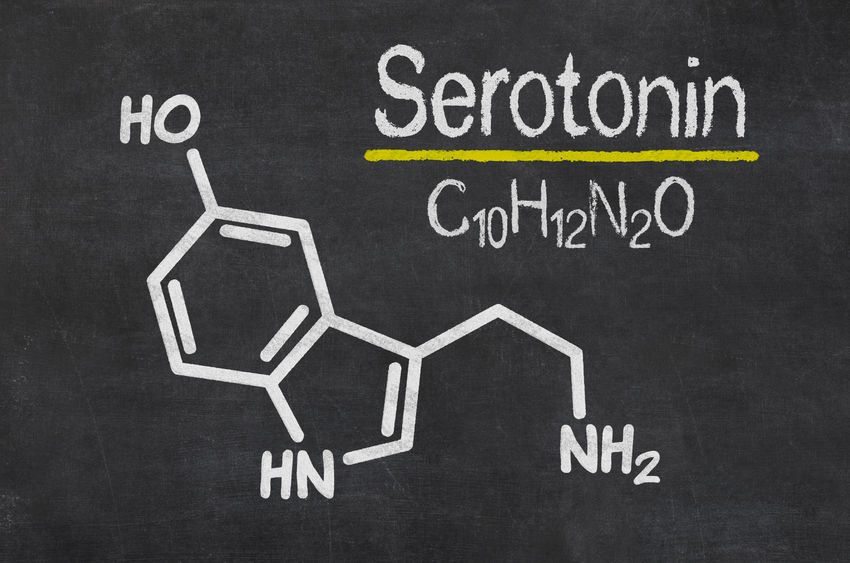
[cmamad id=”3585″ align=”center” tabid=”display-desktop” mobid=”display-desktop” stg=””]
Nobody really knows why SSRIs work.
They believe that they work due to serotonin.
And they believe that serotonin is a good thing — unfortunately, that’s not the case.
SSRIs cause heart disease by raising serotonin too high.
They are one of unexpected causes of blocked arteries.
Serotonin is a very abundant chemical in the body, and most all of it is generated or found in the gut.
If you have low serotonin in your gut, you get constipated.
It’s one of the most common symptoms of low serotonin.
Serotonin in the gut increases the movements of the gut.
It aids the peristalsis (muscle movements) that moves our food through our digestive system.
You do want to move food quickly through your digestive system.
Not so quickly that you get diarrhea, but you want it to move quickly enough so that food doesn’t sit and rot in your bowel.
So you do need some serotonin to keep the gut going.
[cmamad id=”3586″ align=”center” tabid=”display-desktop” mobid=”display-desktop” stg=””]
But when you take SSRIs, it’s a dramatic increase in the levels of serotonin found in your blood plasma.
This has a negative impact because serotonin is known to cause fibrosis in the body.
Fibrosis a buildup of plaque deposits.
And plaque deposits are not a good thing — especially when they’re in your penis, in your heart, or in your arteries.

So in the study researchers took some monkeys, then they gave them SSRIs.
They observed the results of the medication, especially in the arteries.
For this study, they used a SSRI known as Zoloft.
Because Zoloft is very similar to the other SSRIs, what they discovered most likely applies to all SSRI medications.
This study was done very well.
They cannot ethically do the study in humans, so they used monkeys.
A monkey’s reactions and responses are physiologically near the same as any human being.
So they’re able to apply the results of the study reliably to determine what is probably happening to humans.
What makes this study even more effective is that it was a controlled study.
This means that they used both depressed and not depressed monkeys so that they could compare results.
And they had groups of each mental state that were treated, and which were untreated.
What’s great about this is that it removes the possibility that the depression is the cause of the effect they’re studying.
It removes bias so that we can trust the results when they state them.
The observed atherosclerosis extent in depressed monkeys treated with sertraline was 4.9 times higher than in untreated depressed monkeys
So the monkeys who had the SSRIs experienced five times more clogged arteries than the untreated monkeys.
There have been some attempts to do the study in humans, and they found mixed results.
I believe that this is because the drug companies really don’t want to know the truth.
They don’t want proof that serotonin increases clogged arteries.
I pointed out that serotonin is necessary for the body.
It’s true. But you don’t want serotonin levels which are too high.
SSRIs tend to raise plasma serotonin levels.
I think this is the reason that SSRIs cause atherosclerosis.
Follow the train of thought here.
Having a too high level of serotonin in the blood leads to clogged arteries.
Clogged arteries caused heart problems.
Therefore, you have to assume that SSRI’s contribute to heart problems by raising serotonin too high.
This is compounded because the heart is very responsive to high serotonin.
Drugs that raise serotonin often have heart consequences.
This study shows that SSRIs do in fact increase the likelihood of having a heart attack:

This study took 40 patients matched to make similar pairs.
One-half of each pair had been on SSRIs.
The other half had not taken SSRIs.
All of these patients had sudden heart attacks.
So they performed autopsies and compared the medical results for these patients to see what they could learn.
Pathological changes in SSRI users consisted of various degrees of fibrosis.
Fibrosis is similar to scar tissue.
You don’t want fibrotic growth in your heart because it’s a sign of heart failure.
And of course, it’s the reason that these people had sudden heart attacks.
I want to make it important note about both studies.
Both studies used typical doses of SSRIs, not huge doses.
SSRIs may play a potential, causative role in sudden deaths in chronic users even at therapeutic concentrations.
It’s definitely a good idea to avoid taking SSRIs if at all possible.
I’m not a doctor, and I’m not telling you not to take medication.
But I’m advising you to speak to your doctor and see if you can get on a different type of regiment for depression and anxiety.
SSRIs are just bad news.

http://www.ncbi.nlm.nih.gov/pmc/articles/PMC4397139/
Cardiac Toxicity in Selective Serotonin Reuptake Inhibitor Users
http://journals.lww.com/amjforensicmedicine/Abstract/2015/12000/Cardiac_Toxicity_in_
Selective_Serotonin_Reuptake.17.aspx
